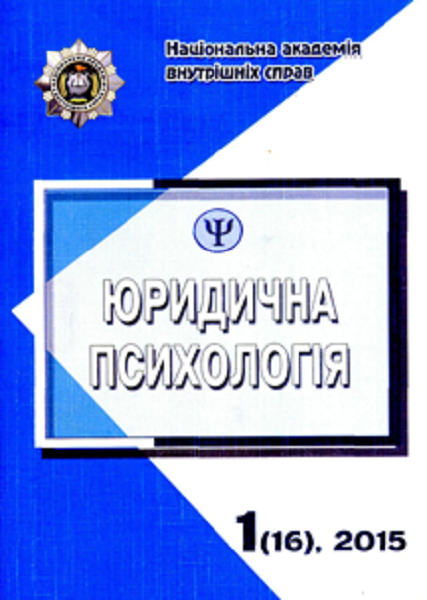Criminal-psychological typology of the subject of rape
Keywords:
rape, typology, the subject of rape, criminal orientation, violence, aggression
Abstract
Rape inherent social and cultural effects loop, intimate experiences of victims, deep psychological trauma. Together with other causes, they give only latent most of these criminal acts and seriously complicate the criminal investigation of rape. Exceptional value in a criminal investigation and prevention of rape belongs criminal-psychological typing the subject of the act. Crime prevention can not rely solely on the individual uniqueness of each individual. It should take into account the definition of a typical contingent of criminals, their classification and so on. On this basis, the article presents an analysis of typing subjects rape theories C. Lombroso, A. F. Lazurskogo, S. Poznysheva, Н. Grote, H. Tochal, Y. M. Antonyan, V. P. Golubev, Y. M. Kudriakov, R. Gebhard. Despite the presented typology author suggests possible to construct a typology of subjects of rape on the basis of the dispositions of art. 152 of Criminal Code of Ukraine. It involves the allocation of the 4 types of criminals who commit respectively: «classic rape»; «rrecurrent rape»; «gang rape» «articularly dangerous rape»by minors.Downloads
Download data is not yet available.
Abstract views: 104 PDF Downloads: 706
Issue
Section
Psychological issues of work with delinquent persons
- Authors reserve the right to authorship of their own work and transfer to the magazine the right of the first publication of this work under the terms of the Creative Commons Attribution License, which allows other persons to freely distribute published work with mandatory reference to authors of the original work and the first publication of an article in this magazine.
- Authors have the right to enter into separate additional agreements on non-exclusive dissemination of the work in the form in which it was published in the journal (for example, to post an article in the institution's repository or to publish as part of a monograph), provided that the link to the first publication of the work in this journal is maintained.
- The journal's policy allows and encourages the posting of articles by authors on the Internet (for example, in electronic storehouses of institutions or on personal websites), both before the submission of this manuscript to the editorial office and during its editorial processing, as this contributes to the creation of a productive scientific discussion and positively affects the efficiency and dynamics of citing the published work.




